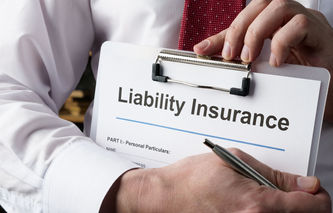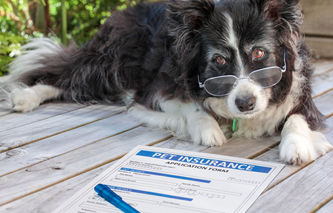While many of us don't like the idea of paying our insurance premiums each year, we are always glad we did when we need to file a claim. But how many of us even think about buying insurance against disasters? We might even be lulled into complacency because we're thinking that our existing homeowners insurance policy protects us against natural disasters. But as we'll soon explain, that's not always the case.
In this article, we're going to explain what coverage to expect from a "standard" homeowners insurance policy. We're also going to talk about events that might not be covered under an existing policy that can lead to devastating losses. With those two pieces of information, it's possible to make an educated decision as to whether or not to buy disaster insurance.
Homeowners Insurance Coverage
The specific protection that we're going to discuss in this article has to do with property coverage. We are going to talk about the protections available for damage to the home, or dwelling. A homeowners insurance policy offers other protections too, such as liability insurance, but that particular topic is covered elsewhere on this website. An insurance policy that offers the homeowner adequate protection will pay the costs required to rebuild the entire structure, as well as the replacement of much of the home's content. But while an insurance company pledges to pay these costs, there is a limit to their generosity. This limit is often stated in terms of the "perils insured against." While the exact coverage will vary from policy-to-policy, the following is a good list of the types of natural "disasters" that a standard policy covers:
Fire / Lightning
Windstorms / Hail
Freezing of Plumbing / Pipes
Damage from Weight of Ice
Volcanic Eruptions (with exceptions)
On the other hand, a policy will also spell out the disasters not insured against. The most common exclusions to a policy include water damage, as well as damage caused by earth movement.
Disasters Not Typically Covered
If we examine the typical natural disasters that can strike a home, our list is relatively short and includes:
Disasters not covered in a homeowers policy typically include: floods, earthquakes, windstorms, wildfires, volcanic eruptions, and landslidesMoneyzine Editor
Earthquakes: while certainly more common in states like California, earthquakes can happen (albeit with low probabilities) nearly everywhere on earth.
Floods: typically the result of abnormal rainfall, flooding can be the result of localized storms or hurricanes. As is the case with earthquakes, floods resulting from hurricanes are more common in the Gulf Coast states and North Carolina.
Windstorms: again, a windstorm can range from a localized burst of wind to more organized storms such as tornados. Windstorms and tornados occur with a greater frequency in a stretch of the United States known as Tornado Alley, which runs through the states of Texas, Oklahoma, Kansas, Nebraska and South Dakota.
Volcanic Eruptions: the least common of disasters, volcanic eruptions encompasses lahars (wet rock flow), lava flows, and pyroclastic flows (a high-speed flow of hot, dry, gas and rocks).
Landslides: typically the result of rainfall, volcanic eruptions, avalanches, earthquakes or other events triggering large land movements.
Fire: in the context of naturally occurring disasters, the typical event might be a forest fire or wildfire resulting from lightning strikes.
Insurance Exclusions
In the same way that insurance companies are up-front about identifying the perils insured against, policies are also very clear on what's not covered. These are known as policy exclusions. Depending on location, as well as the insurance carrier, the two most common exclusions are:
Earth Movement
Flooding
The good news is that most individuals are very likely insured against many natural disasters already just by owning a homeowners insurance policy. The bad news is that if the home is located in a flood prone area or in an area of the country where earthquakes are relatively common, then purchasing insurance against these disasters is necessary.
Disaster Insurance Policies
Before making any purchase decision, take the time to open up the homeowners insurance policy and read through the existing coverage. The exact coverage should be clearly spelled-out in the policy's buyer's guide or in the policy itself. Only then will there be a clear picture of the types of disasters that are already covered by the policy. As promised, we are going to finish this article by explaining some of the options available when it comes to purchasing disaster insurance.
Flood Insurance
Flooding can occur in nearly all 50 states. In fact, according to the Federal Emergency Management Agency (FEMA), around 30% of all flood claims originate from areas that are categorized as moderate-to-low flood risk. Fortunately, flood insurance is universally available to homeowners via FEMA's National Flood Insurance Program (NFIP). A home located in a moderate-to-low risk area can purchase $250,000 in coverage for just over $450 annually. This same level of coverage in a high-risk area will cost in the neighborhood of $10,000. In 2012, the Biggert-Waters Flood Insurance Reform Act was passed. This act calls on the FEMA to make a number of changes to the way the NFIP is run. One of the changes has to do with premiums, which are scheduled to increase in some areas over time.
Earthquake Insurance
In most states, earthquake insurance can be purchased directly from a homeowners insurance company. The California Earthquake Authority (CEA) is a state-run insurance pool that is responsible for most of the policies sold in California. The cost of earthquake insurance will vary by geography, the value of the home, the dwelling type (year built), as well as the number of stories (multilevel versus single story). The factor having the biggest influence on cost, however, is the location of the home. For example, a $1 million policy for a new, single-story home will cost around $350 in the San Diego area, while that same policy for an identical home located in Oakland will cost closer to $3,800.






.jpg)
.jpg)